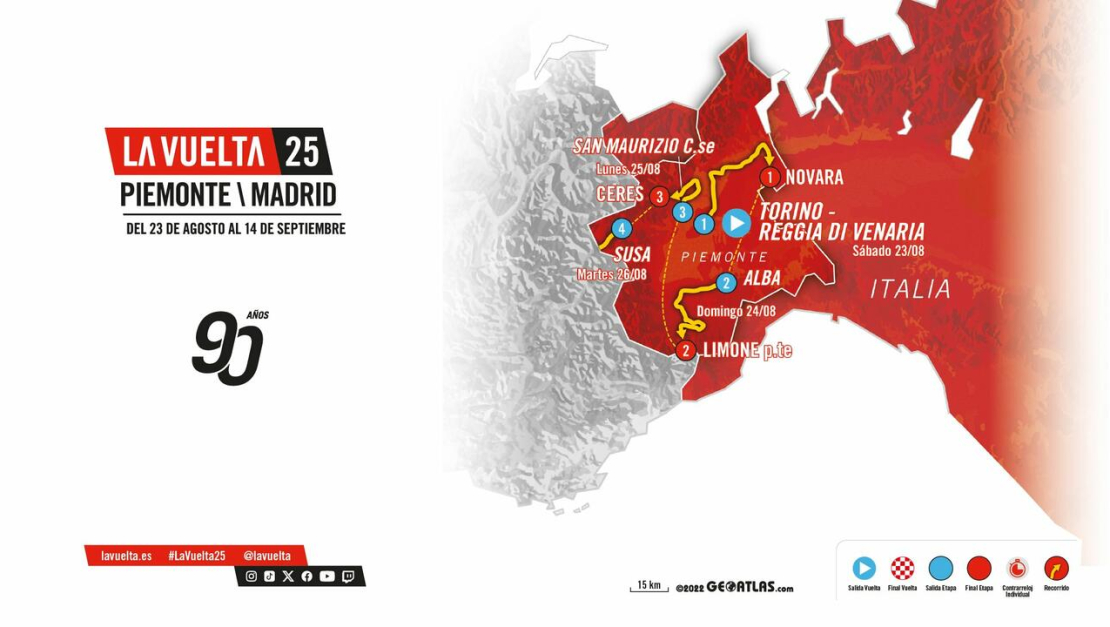In 2025, the Vuelta, one of the three ‘Grand Races’ of road cycling, will start in Piedmont, bringing the excitement of the legendary Iberian competition to Italian roads. But what does the organisation of an event of this magnitude entail from a logistical point of view?
A complex organisational machine
Long-term cycling events such as the Vuelta, the Tour de France or the Giro d'Italia, which cover thousands of kilometres, require impeccable planning and an extremely complex organisational machine.
From the initial planning to the conclusion of the last stage, every detail is studied and coordinated with precision. The first step is the analysis of the route, which makes it possible to define the transport plans for key equipment such as the infrastructure for the starts and finishes, hospitality villages, podiums and grandstands.
The operational work is based on perfect coordination between specialised teams working in parallel: one team is dedicated to setting up the start, while another prepares the finish. This approach guarantees the smooth running of operations and compliance with the tight schedule imposed by the competition calendar.
Tailor-made logistics
To transport the hundreds of tonnes of materials required, dedicated vehicles such as fully equipped trucks are used and operated by highly qualified personnel. Each stage involves hours of work to assemble and dismantle structures such as arches, finish areas, sports points and protective barriers.
The slightest mistake can jeopardise the entire event, so the logistics teams must operate with the utmost precision, while ensuring high safety standards for athletes and spectators.
The challenge of sustainability
In recent years, sustainability has become a priority for organisers of large-scale events. Among the most advanced solutions is the use of alternative fuels such as biodegradable hydrotreated vegetable oil (HVO), which enables a significant reduction in CO2 emissions and fine dust pollution.
The use of low-emission vehicles, such as electric vehicles, and the adoption of multimodality - combining road, rail and sea transport - represent further steps towards more sustainable logistics. These solutions not only reduce environmental impact, but also solve driver shortage issues and optimise operating costs.
The future of logistics for major events
Major cycling events are not only sporting events, but also laboratories of logistical innovation. Advanced technologies, sustainability strategies and optimised resource management are the keys to ensuring that these competitions continue to excite millions of fans around the world, while also leaving a positive mark on the environment.
Organising events of this magnitude means going beyond the simple handling of vehicles and materials: it is about creating unforgettable experiences, where logistics becomes as much a protagonist as the race itself.






